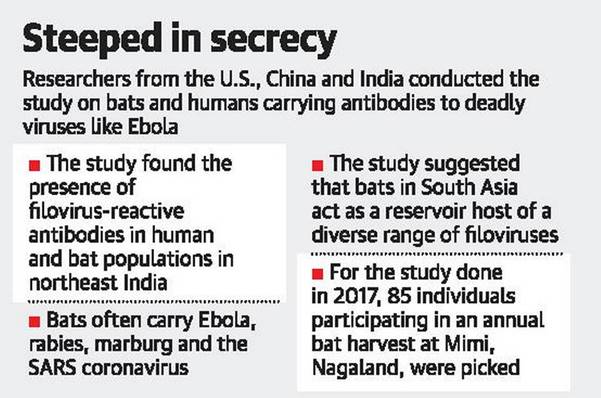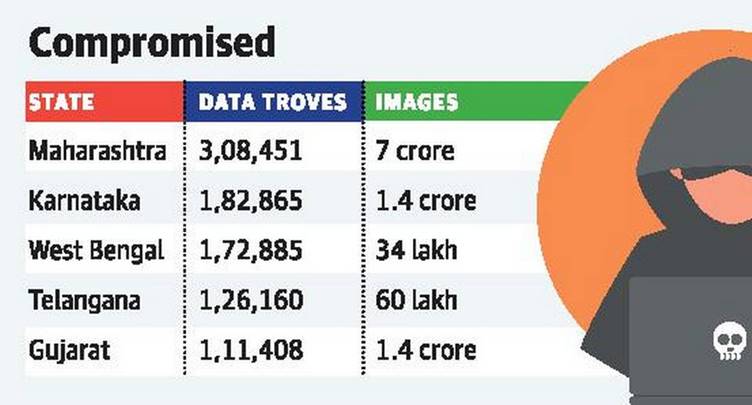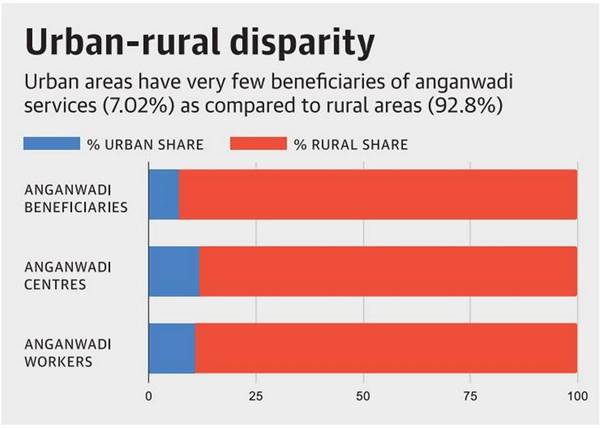



Study on bats | No rules were broken, says NCBS
- Researchers based at the NCBS collected samples of serum from bats and humans.
- These samples were tested at the NCBS with the technologies supplied by the Duke-National University of Singapore Medical School (Duke-NUS).
- Its researchers have been studying bat antibodies in Nagaland since 2012.
- In 2017, the NCBS and Duke-National University of Singapore Medical School (Duke-NUS) started a collaboration in which researchers based at the NCBS collected samples of serum from bats and humans.
- Researchers from the Wuhan Institute of Virology (WIV) were not directly involved in the study. They were listed co-authors only because they supplied reagents.
- NCBS is not a direct recipient of research funds from the DTRA, which funded the study and no biological samples or infectious agents were transferred into or out of India.
- There were funds transferred from Duke-NUS to NCBS as part of the joint study.
- The Department of Atomic Energy had approved the study and had “given security clearance” to the Duke-NUS collaborator.


- Medical details of over 120 million Indian patients have been leaked and made freely available on the Internet.
- The number of data troves containing this sensitive data went up by a significant number in the Indian context.
- Earlier, Greenbone revealed a widespread data leak of a massive number of records, including images of CT scans, X-rays, MRIs and even pictures of the patients.
- For the systems located in India, that almost 100% of the studies (data troves) allow full access to related images.
- Maharashtra ranks the highest in terms of the number of data troves available online.
- Leak was facilitated because Picture Archiving and Communications Systems (PACS) servers, where these details are stored, are not secure and linked to the public Internet without any protection.
- Follow up report classified country into Good, bad and ugly based on action taken on earlier reports.
- India came 2nd in Ugly status after US.
- The affected patients can include anyone from the common working man to politicians and celebrities.
- In image-driven fields like politics or entertainment, knowledge about certain ailments faced by people from these fields could deal a huge blow to their image.
- The other concern is of fake identities being created using the details, which can be misused in any possible number of ways.
Ending decades of free entry to Indian tourists visiting Bhutan, the government in Thimphu has decided to levy a daily ₹1,200 ($17) fee for “regional tourists” from India, the Maldives and Bangladesh, beginning July 2020.
- It is meant to help the government deal with burgeoning numbers in tourist traffic.
- Bhutan is seeking to regulate through a new tourism policy.
- The SDF is considerably lower than the $65 charged to other foreign tourists, who are also charged a compulsory flat “cover charge” of $250 per day.
- The government has decided to drop SDF charges for tourists visiting 11 of 20 total districts that fall in the east from Trongsa to Trashigang.
- The idea of the SDF was to provide better facilities for regional tourists.
- Indian tourists do not follow the local customs and litter the environment.
- The fee will help in developing the better facilities for regional tourists.

- Seven out of 100 working Anganwadi are situated in Urban areas.
- There were a total 7.95 crore beneficiaries of the anganwadi scheme in the country.
- Only 55 Lakh beneficiaries are in Urban areas.
- Total 13.79 lakh aanganwadi are functional in the country.
- Out of which 9.31 lakh centres are linked to the government’s web-enabled data entry system called Rapid Reporting System.
- 1.09 lakh centres are in urban areas and the remaining 8.22 lakh were in rural areas of the country can be monitored online.
- They are set up under the Integrated Child Development Services (ICDS) by the Women and Child Development Ministry to provide a package of six services, which includes:
- supplementary nutrition;
- pre-school non-formal education;
- immunisation, nutrition and health education;
- as well as referral services.
- The aim of the scheme is to reduce infant mortality and child malnutrition.
- Beneficiaries include children in the age group of six months to six years and pregnant women and lactating mothers.
- 22% of children in the age group of 5-9 years were stunted and 23% were thin for their age.
- 20% of those in the 10-19 years age group were thin for their age.
- 35% of children under five were stunted and 17% were wasted.
- 2% of under four-year-olds, 8% of children in the 5-9 years age group and 6% of adolescents were overweight.
- Children in urban areas showed two to three times higher prevalence of obesity as compared to their peers in rural areas.
- It is permitted under Sector 2(5) of the Medical Council of India (MCI) Act 1999
- It was not being done to promote the private sector.
- Government will offer district hospitals to the private sector without compromising on the interest of patients.
- The Niti Aayog has come out with draft norms to link existing private medical colleges with district hospitals through viability gap funding.
- Clause 2(5) of the MCI is Establishment of Medical College Regulations, 1999, prescribes that the appropriate government may allow utilisation of facilities of a hospital owned and managed by it for establishing a medical college by a person/agency /trust/society/company by entering into a Memorandum of Understanding for this purpose.
- The hospital to be linked would be of minimum 300 beds with necessary infrastructural facilities capable of being developed into teaching institution for the proposed medical college.
- Dialysis services are provided at district hospitals for management of chronic kidney diseases under the Pradhan Mantri National Dialysis Programme (PMNDP).
- It was rolled out in 2016 as part of the National Health Mission (NHM) for provision of free dialysis services to the poor.
- It envisages provision of dialysis services under NHM in PPP (Public Private Partnership) mode.
- Dialysis services under PMNDP are provided free of cost to Below Poverty Line (BPL) patients.
- Court questioned the Speaker’s inaction and asked the reasons for keeping the disqualification petitions pending for three whole years without even issuing notice.
- As the three-year delay was unnecessary. Court admitted that it had no intention to “go wandering into the Speaker’s jurisdiction” of deciding anti-defection petition.
- Supreme Court has directed Speakers to decide anti-defection law petitions within three months maximum.
- Justice Nariman judgment had no validity because the question of whether a constitutional court can judicially review the inaction of the Speaker had been referred to a five-judge Bench way back in 2016 in the Sampath Kumar case.
- Court has already laid down that “failure of the Speaker to exercise his jurisdiction will attract judicial review”.
Anti-Defection Law:
- It lays down the process by which legislators may be disqualified on grounds of defection by the Presiding Officer of a legislature based on a petition by any other member of the House.
- A legislator is deemed to have defected if he either voluntarily gives up the membership of his party or disobeys the directives of the party leadership on a vote. This implies that a legislator defying (abstaining or voting against) the party whip on any issue can lose his membership of the House. The law applies to both Parliament and state assemblies.
Anti-defection law did three things:
- It made legislators liable to be penalized for their conduct both inside the house (voting) and outside the house (Opposing the party policies).
- It protected legislators from defection when there was a split in the party by at least 1/3rd member of the party.
- Presiding officer of the legislative house is the final authority to decide on the anti-defection.
- Amendment in 2003 deleted the provisions of 1/3rd split as a legal basis of defection.
- Government has not taken any decision to prepare National Register of Citizens (NRC) at the national level.
- Government is in discussion with the States having concerns about the preparation of National Population Register (NPR).
- During the exercise of updation of NPR, no verification is done to find individuals whose citizenship is doubtful.
- The demographic and other particulars of each family and individual are to be updated/collected during the exercise of updation of NPR. No document is to be collected during this exercise.
- An instruction manual for updation of NPR 2020 for enumerators and supervisors has been prepared.
- The NPR updation will be undertaken through house-to-house enumeration for collection of specified particulars relating to each family and individual.
- It does not yet constitute a “pandemic”. It is at the phase where it is an epidemic with multiple foci.
- While there is rapid spread of transmission in Hubei, outside the province there are mainly “spill over cases” with sporadic clusters of transmission.
- Authorities in China have taken dramatic measures to halt transmission
- Other affected countries have put in place steps to rein in the spread.
- Countries are implementing early case detection, early isolation and treatment of patients.
- Masks alone are not enough. It is a package of measures that one has to put in place.
- Contact tracing to make sure they identify very early contacts that become symptomatic.

© 2025 iasgyan. All right reserved